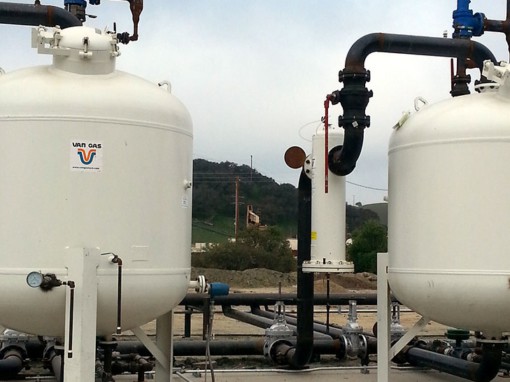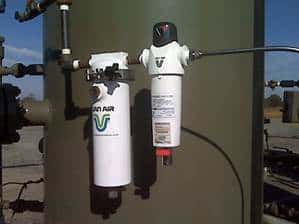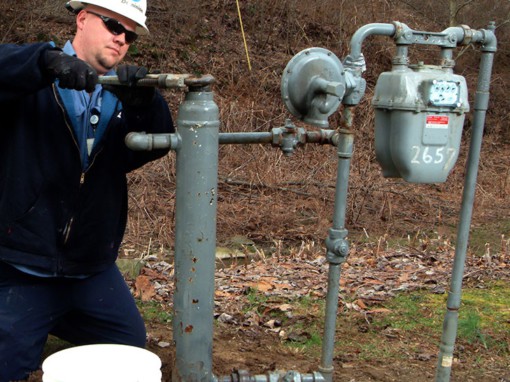Oil & Gas Search Results for: “”

Pipeline Deliquescents & Desiccants for Fuel Gas Conditioning
Oil and natural gas drillers, producers, and processors often rely on raw untreated natural gas to generate heat, steam, and power at remote operating sites. This fuel gas can contain a variety of impurities, including liquid water, water vapor, liquid hydrocarbons, compressor lubricants, glycol, paraffin, solid particulates, and aerosol mists….
Coalescing & Particulate Filters for Fuel Gas Coalescing
Sometimes a fuel gas combustion device such as a small boiler, catalytic heater, or burner does not require dehydrated gas. Fuel gas free of liquids and mists is good enough. For these small fuel gas applications, Van Air Systems offer F200 series filters for basic fuel gas coalescing. These inline…

In-line Desiccant Dryers for Instrument Gas Drying & Filtration
Oil and gas companies use pressurized natural gas (i.e. instrument gas) to operate pneumatic actuators and controllers. These controllers are essential for managing process flows at wellheads, compressor stations, and processing plants. Pneumatic actuators controllers direct the opening and closing of valves, the level of fluids in tanks and separators,…
Heatless Regenerative/Pressure Swing Dryers for Hazardous Area Compressed Air Drying
Compressed air is widely used in the oil and natural gas industry to drive pneumatic pumps, operate drill rig controls, and to drive actuators and controllers at production sites. Often operating spaces at these sites have a hazardous area electrical classification, due to the presence of combustible vapor. Such classification…

Alternative Triethylene Glycol (TEG) Dehydrators For Gas Dehydration
The sale of natural gas between producers, processors, transporters, and utilities is governed by contracts that specify terms of gas quality measured by heating value, temperature, pressure, liquid content, and water vapor content. Many sales contracts require that each million standard cubic feet (MMSCF) of gas contains no more than…
